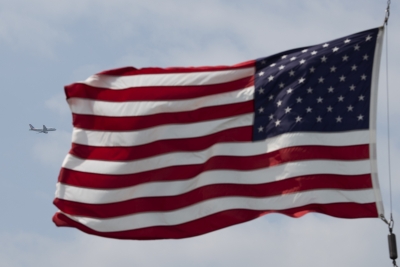America
US Warns Companies of Risks to Hong Kong Operations, Equating Threat to That Faced by Chinese Firms

Washington DC, September 7,:
The new national security law that Hong Kong implemented earlier this year has increased the risks to American corporations' activities to the same level as those in China, according to an alert provided by US government agencies.
In an updated business advisory for the region, the US State Department, along with five other government departments—including agriculture, commerce, homeland security, and treasury—stated on Friday that businesses should be aware that the risks they face in China are now increasingly present in Hong Kong.
According to the warning, these regulations in Hong Kong significantly limit basic freedoms and human rights protections.
A number of these dangers originate from the March 2024 Safeguarding National Security Ordinance (SNS Ordinance or "Article 23") and the Law of the People's Republic of China (PRC) on Safeguarding National Security in the Hong Kong Special Administrative Region (the National Security Law, or NSL) as they are officially known.
Businesses' employees, assets, compliance with regulations, credibility, and operations could be adversely impacted by the NSL, the SNS Ordinance, and measures taken by the governments of China and Hong Kong, like the imposition of bounties, according to the US State Department.
According to the State Department, the business advisory was initially released in 2021. The updated advisory offers Hong Kong-based enterprises information that can help them make better business decisions and risk assessments.
Increased scrutiny, possible financial fines, and legal proceedings for suspected breaches of the NSL or the SNS Ordinance are among the reputational, legal, regulatory, operational, and financial concerns that businesses operating in Hong Kong face, according to the report.
It went on to say that companies having Hong Kong operations may be subject to competing jurisdictional demands and liabilities stemming from their attempts to comply with sanctions. It added that US law imposes both civil and criminal penalties for noncompliance with US sanctions.
Despite being a part of China, the common law system is still in place in Hong Kong for civil and commercial disputes. For those involved in business conflicts involving alternative dispute resolution methods, Hong Kong is home to the Hong Kong International Arbitration Centre (HKIAC).
It has its own regulatory framework to keep tabs on businesses operating within the area, as well as its own currency. In addition to managing its own customs territory, implementing its own monetary policy, and continuing to exercise independent authority in the implementation of commercial agreements, Hong Kong has maintained its own representation in numerous international organizations and multilateral entities, such as the World Trade Organization, the Asia-Pacific Economic Cooperation, and the Financial Action Task Force.
Big structural changes occurred in June 2020 when China imposed the NSL on Hong Kong. The US State Department said that this "significantly reduced Hong Kong's autonomy and undermined human rights and fundamental freedoms."
Sanctions implemented by the US and other nations might lead to Chinese retaliation and countermeasures for Hong Kong-based businesses. Both the UN sanctions ordinance and the UN anti-terrorism measures legislation govern Hong Kong's financial sanctions framework, and the Hong Kong authorities formally acknowledge UN sanctions but do not recognize US sanctions.





































